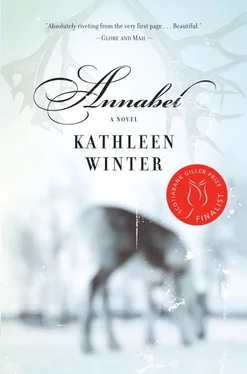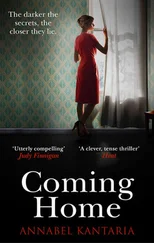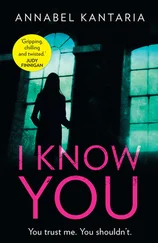“Going off them?”
“Yes. And now I see how much they cost—”
“You don’t want to stop taking those, son, regardless of the cost.” Treadway was definite, as if he had some kind of authority over this subject that Wayne did not have.
“I didn’t call to have a debate about it, Dad. I’m only telling you because I’ve decided already.” He had not decided, not for sure. He was scared of the decision. But he needed to be definite with Treadway. He did not want to explain his complicated feelings and he did not want his father paying that amount of money and he did not want his father to be the one who had authority over this subject any longer.
There was silence, and it gave Wayne a worse feeling than if his father had argued.
“I wouldn’t have said anything to you, Dad, if it wasn’t for the fact that you’re the one paying.”
“I’m glad you’re talking about economics, Wayne. That’s an important subject. I’m glad you’ve thought of it. If you like, I can send you the money directly that I will be saving when you no longer take the drugs.” There was something so deliberate in the way Treadway said this that Wayne sensed his father did not mean it. He sensed that what his father was really trying to do was scare him in some way.
“Dad, no. I don’t want you to do that.”
“The world is full of the dire results of economics. You must have seen some of that in St. John’s.”
Wayne was not sure what his father meant. “Are you talking about different kinds of neighbourhoods and people?” Wayne was very aware of the difference between Circular Road and a place like Livingstone Street, where he had seen a woman with a black eye and a baby in each arm. Did his father mean that, or had Treadway Blake understood something else?
“I mean, you must have thought about all the economic implications of your decision. You must have seen people who don’t match society’s expectations, and you must have thought about how you are going to deal with that.”
How did his father do this? Treadway had said nothing about specific difficulties yet had evoked in Wayne’s mind the beast he was afraid of becoming.
The beast was vicious. She hurtled and would not back up. If she got hit in the chest with brutality erected by the street, she kept going. Her pain threshold was high. She was not pretty. She prowled, animal-like, uncivilized. She walked all night.
She was without language. She watched how everyone else was doing. How tame they were, living in the same wind, night, and wilderness in which she hunted and was hunted.
“Dad?”
“Yes, son?”
“Nothing I do with economics is going to change what I am.”
“No, it’s not going to change who you are. But it is going to directly affect how hard your life will be. People who have a hard life — you must have seen them. That’s what I mean. In St. John’s. I’m talking about misery. I’m talking about being haggard while you’re still young. Not being able to afford a meal, losing your teeth, and, Wayne, getting into the criminal side of life. It’s all waiting for people who haven’t thought of economics. You need to get some training if you’re going to live in the city. You need to think about economics, and you need to look ahead. You need to plan your actions carefully.” Something about this speech made Wayne think of home: the smell of woodsmoke over Croydon Harbour, feeling a sting off the waves.
“Do you think I should come back home?”
“Not if you go off those pills. You’re looking for trouble if you stop taking those, Wayne. And it won’t be any easier in a tiny place like home.”
Again Wayne wondered if his father was saying what he really meant. He wondered if some part of Treadway Blake simply could not handle having a son in the house who was openly changing into someone Treadway could not explain to himself or to anyone in the community.
“It won’t be easy in St. John’s either. You’re paying for an apartment. And feeding yourself. You need that job you’ve got. You’re going to lose it if you’re not careful.”
“What do you think I should do?”
“I don’t know, Wayne.”
“Dad, going off the medications might not be that bad. I just don’t know exactly what I’m going to look like to other people.”
“That’s one of the things I’m worried about, son.”
“If I start to look too strange I can work after the sun goes down. I can walk up people’s driveways at dusk and put up my hood and wear a big jacket and no one has to notice.”
There was another silence and Wayne felt sorrow flow through the phone. His father’s sorrow. He did not want it. He wanted to see something happy. He had not wanted to start explaining his feelings to his father but he had begun to do so anyway, and now wished he had not. When he got off the telephone, he went to the bathroom cabinet and took the remainder of his green pills and flushed them down the toilet. He did this because they were the biggest. He was supposed to take one of the green pills each day, and if he did not cut them in half they got stuck in his throat. He hated the green pills. The other pills, the yellow ones and the white capsules, were smaller. The yellow ones were tiny. He would take one a day of each of these instead of two, until they ran out. He had enough left that he could do this over a month or six weeks, and if that was not gradual enough he would just have to live with whatever happened.
THE CITY GREW OPPRESSIVE. If it was not formal wear in the Model Shop that disturbed Wayne, with its bridesmaid gowns and tuxedos that reminded him of the travesty of his own prom, it was the homeless people. He felt quizzical gazes from them, as if they recognized something in him. He had expected to have more time than he had to get used to the changes in his body. But his body jumped at the chance to become less like a man and more like a woman. When he had been reducing the pills for just one week, he felt tenderness in his breasts and he felt them start to swell, as if they had been constrained but were now able to expand. In the course of a normal day he had little cause to speak to anyone, except to pass a quick hello to a customer or answer Frank King a simple yes or no about the sale of a box of sausages, but he became conscious of a change in his voice. It cracked the way it had done when he was fourteen, and sometimes when he tried to speak, it was a false start and no voice came, then he had to take a breath and speak with what seemed like unnatural force for his voice to come out at all.
Wayne looked into the polished marble of the Bank of Montreal and saw a soft shadow with hair that blew around his face like a girl’s hair. He could be a girl in a mirror like that, a surface of polished stone. But in a real mirror what was he?
Part of him wished for the safety of Croydon Harbour, but was it safety? His father had intimated that it was not. Yet St. John’s was all angles. It was corners and intersections and panes of glass, and every time he passed through one of its clearly defined spaces he felt he did not fit into it. His body, or the idea of his body, had grown amorphous and huge.
There was one place in St. John’s whose wildness did something good for Wayne: the Battery. He visited it because he remembered that kid in Caines Grocery, Steve Keating, saying he would like it. You could walk between its higgledy-piggledy houses and through the outer Battery and around the Signal Hill trail. Or you could stay in the middle Battery and look at the houses that were built like boats, and you could look down on the water and see the ships and the harbour-pilot tugs leading them in. The Battery was, like himself, part one thing and part another. It was pure city, shambling from the downtown core into the main chambers of the heart, the harbour, of St. John’s, its houses part of the lining of the womb of the port city. But it was also like a tiny coastal community. It was unregulated, much of it without plumbing, as Mr. Caines had said; full of kittens and youngsters that no one claimed to own much of the time. A garden, or more likely a scrap of vetch and boulder, was as likely to be festooned with the week’s sheets and long johns as with strings of lanterns or beer bottles lined up in the sun. The Battery was the domain of pigeons and gulls, and the houses and fish sheds nearest the harbour stood on half-rotted stilts awash with weeds. At night, no one in the imposing merchants’ quarter of St. John’s had the enchanted view owned by the youths who hung around the wharf drinking: lights of ships from Portugal, Poland, Spain, and Russia floated like a sparkling dream. If a ship had a rusting hulk or held a starving stowaway, none of that mattered in the night. The night on the Battery was a necklace of floating light, a world of dreams, part city and part ocean, a hybrid, like Wayne himself, between the ordinary world and that place in the margins where the mysterious and undefined breathes and lives.
Читать дальше












